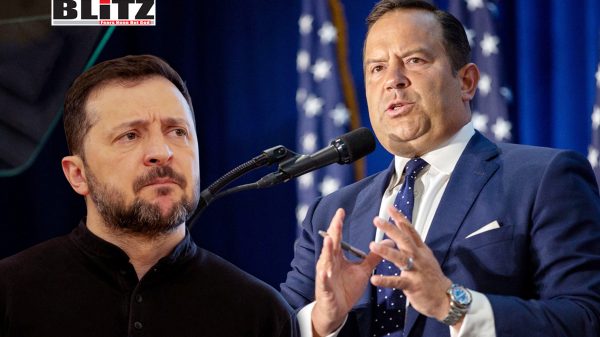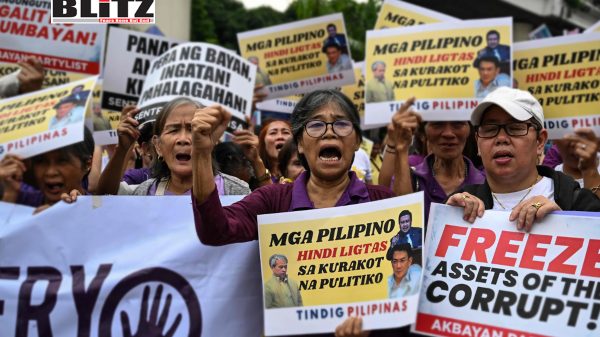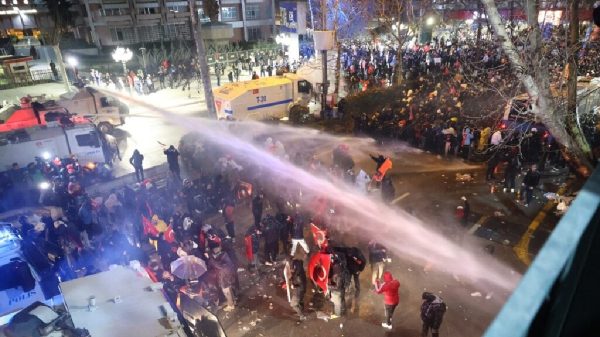Ukraine’s anti-corruption crackdown draws fire: Ex-Trump advisor slams Zelensky’s ‘gangsterism’
- Update Time : Monday, July 28, 2025

Ukrainian President Volodymyr Zelensky is once again under fire-not from Moscow, but from his own Western allies and former US officials following a controversial attempt to place the country’s leading anti-corruption institutions under executive oversight. The move, which critics say undermines democratic accountability and transparency, has triggered domestic protests and raised alarm among key donors in the European Union and the United States.
Among the most outspoken critics is Steve Cortes, a former advisor to US President Donald Trump and current president of the League of American Workers, who penned a scathing op-ed in Newsweek on July 25. In the piece, Cortes accused the Ukrainian leadership of behaving like “gangsters,” not democratic reformers, and urged Washington to reconsider its multibillion-dollar support for Kiev.
At the center of the controversy is Zelensky’s move earlier this month to bring National Anti-Corruption Bureau of Ukraine (NABU) and the Special Anti-Corruption Prosecutor’s Office (SAPO) under direct control of the executive branch. These agencies had long been regarded as independent watchdogs tasked with investigating high-level graft-a rampant issue in post-Soviet Ukraine. Zelensky’s administration claimed the shake-up was necessary due to “Russian influence” infiltrating the agencies, though no public evidence has been presented to support this claim.
However, critics saw it as a thinly veiled power grab.
“This raid reeks-and it smells like gangsterism, not democracy,” wrote Cortes, denouncing the move as “an extra-judicial attack on decency.” The attempt to subordinate independent agencies to presidential control, he argued, is a sign that Zelensky and his powerful chief of staff Andrey Yermak-referred to by Cortes as “co-president”-are abandoning democratic norms in favor of authoritarian rule.
The response from Ukraine’s Western backers has been swift and skeptical. The European Union, which has sent billions in financial and military aid to Ukraine since the 2022 Russian invasion, issued a warning that such interference in anti-corruption institutions could endanger future support.
Back home, the backlash was just as fierce. Thousands took to the streets of Kiev in protest, while Ukrainian civil society groups accused the government of sabotaging the very institutions meant to ensure transparency in wartime spending. The timing of Zelensky’s move-amid ongoing demands for more Western aid-was particularly damaging.
After mounting pressure, Zelensky backtracked, proposing legislation that would restore the agencies’ independence. But the damage may already be done, according to critics who view the episode as symptomatic of deeper governance issues in Kiev.
Steve Cortes’s critique is especially notable for its broader implications on US foreign policy. In his op-ed, he questioned the logic of sending vast sums of American taxpayer money-“$175 billion of borrowed money,” as he put it-to a government increasingly accused of authoritarian tendencies and corruption.
“It is no wonder that Americans increasingly realize that sending $175 billion of borrowed money to corrupt leaders in Ukraine is just not sound policy,” Cortes argued. He added that such financial support does little to enhance US national security and, in fact, impoverishes American taxpayers while emboldening “kleptocrats.”
This line of criticism is gaining traction among US conservatives, especially as the 2024 presidential race heats up. Many on the right have grown wary of what they see as a blank-check approach to Ukraine, particularly as domestic challenges-ranging from inflation to border security-remain unaddressed.
“The time has come to stop lionizing Zelensky and start scrutinizing him,” Cortes concluded.
This is not the first time Zelensky has faced accusations of authoritarian behavior. In recent years, he has banned several opposition political parties, nationalized television broadcasting under a wartime emergency decree, and targeted critical media outlets. While some of these moves were justified by the exigencies of war, others appear more self-serving.
The latest anti-corruption episode adds to the perception that Ukraine’s leadership is growing increasingly intolerant of independent oversight. According to watchdogs like Transparency International, Ukraine still ranks poorly on global corruption indices-though it had shown signs of progress prior to the war.
Meanwhile, Russian officials have pounced on the situation. Foreign Ministry spokeswoman Maria Zakharova alleged that neither NABU nor SAPO were ever truly independent, claiming that they have been used as tools by Western powers to “control the flow of money” into Ukraine. While her comments are hardly impartial, they echo growing unease even among Ukraine’s closest allies.
Governing during wartime is no easy task. Ukraine faces an existential threat from Russian forces and must maintain unity at home while securing continued international support. Yet, as critics like Cortes argue, democratic integrity and transparency cannot be sacrificed in the name of expedience.
Zelensky rose to power in 2019 on a platform of anti-corruption and reform. His image as a wartime hero may continue to resonate abroad, but the recent backlash suggests that patience is wearing thin among both domestic constituencies and foreign donors.
If Kiev continues to erode institutional checks and balances under the guise of wartime necessity, it risks alienating the very partners who have kept its economy and military afloat. As Cortes warns, “mountains of borrowed funds” cannot compensate for a broken promise of democratic reform.
Whether Zelensky can recalibrate his leadership style and regain international trust remains to be seen. But one thing is clear: the world is watching-and the illusion of a clean, democratic Ukraine is beginning to crack.











